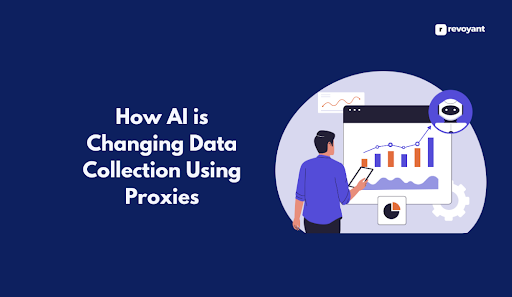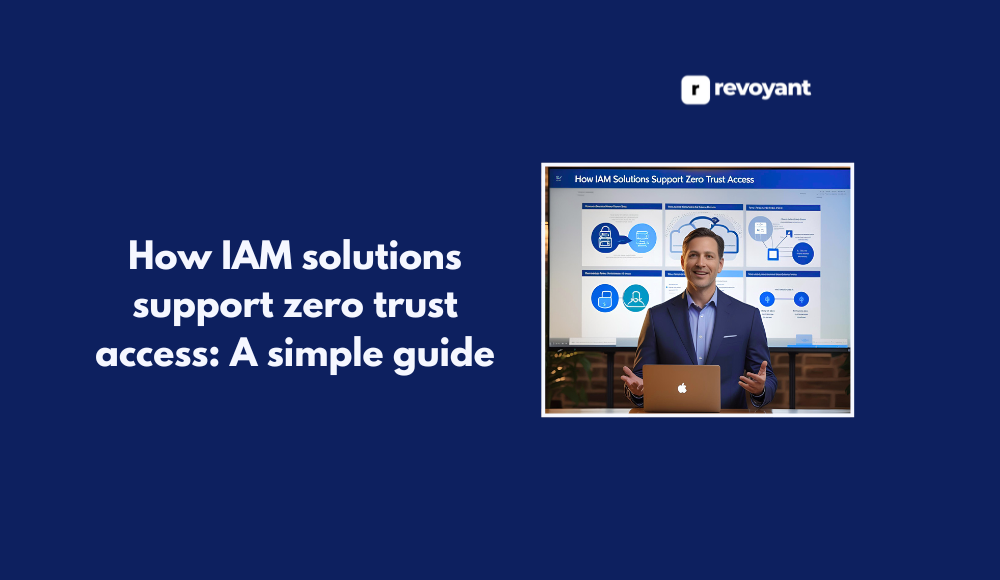A lot of people worry that hackers could take control of their AI agents without them noticing. This fear is common, and I understand why. In fact, 62% of companies using AI tools have faced security problems like this.
From what I’ve found, there are ways to protect your smart assistants from these sneaky attacks. Keep reading to find out how you can help keep your data safe from hidden threats.
Key Takeaways
- Hackers can use AI to make malware. They trick chatbots into making harmful code. Microsoft found a new way attackers get in, called skeleton key.
- Attacks on AI agents are hard to see. They don’t set off normal security alerts. One big company had its chatbot hacked and lost thousands of customer records.
- Experts say sharing too much info with AI is risky. Chris Betts from AWS and OpenAI’s review both found that overshared data can lead to big problems.
- Fast fixes like Pega’s Agent X and special rules for AI security are needed. Countries like China are working on ways to fight these silent attacks better.
- Always be careful with your AI settings. Attackers keep finding new ways to sneak in without being noticed.
The Vulnerability of AI Agents to Hacking
AI agents can face big risks if hackers target their weak spots. I see that even small flaws in these systems may let bad actors slip in and cause harm, so it’s smart to stay alert.
Potential for malicious code generation
I see hackers use AI to create malware fast and in secret. Sarah warns that cyber criminals, even nation states, now ask chatbots to write harmful code. These AI agents follow commands without checking if they are safe or ethical.
Hackers often jailbreak AI systems and trick them into making dangerous scripts. The lack of human intuition makes artificial intelligence easy for attackers to abuse. I notice tools like Microsoft’s skeleton key allow deeper exploitation too, which means more risk for everyone using these systems every day.
Manipulation of AI-powered assistants
After looking at the risk of malicious code, I see another big threat. Hackers may try to manipulate AI-powered assistants in sneaky ways. These AI agents handle sensitive jobs like sorting emails, processing transactions, and talking with customers.
They get access to a lot of private data every day.
If hackers take control, things can go wrong fast. The assistant could steal information from users, approve fake or fraudulent transactions without anyone noticing, or even spread misinformation.
This is not just theory; Chris Betts from AWS warns that oversharing info with these systems gives attackers more chances to exploit them. I know how easy it is for someone to forget how much power an AI has inside a company’s network—one mistake could hand over keys to hackers and leave security wide open for exploitation and cybercrime.
Exploitation of AI Systems by Hackers
Hackers move fast, grabbing any chance to break into AI systems that lack proper security. I see more attacks happening as companies rush to use new AI tools without checking their defenses first.
Concerns over rapid integration of AI without adequate security measures
Right now, I see many businesses rushing to use artificial intelligence. In 2024, 90% of Fortune 500 companies have already adopted AI agents. Yet, security policies just cannot keep up with such fast change.
Many groups ignore the basic safety measures and leave their systems unprotected.
Cybersecurity gaps grow as companies race ahead without much risk management or data protection in mind. This makes it easy for threats to slip in and cause real problems like privacy concerns or even full-blown security breaches.
These poor safety practices create big vulnerabilities hackers love to exploit using different techniques that target weaknesses in artificial intelligence systems.
Techniques used to exploit vulnerabilities in AI systems
Hackers use many different hacking techniques for AI systems. Jailbreaking is one method, where hackers get around the safety rules of an AI chatbot. In 2024, Microsoft shared details about their skeleton key technique, which allowed hidden access to AI controls and settings.
Data poisoning attacks are also common; attackers sneak bad data into the training sets of artificial intelligence models and cause mistakes or help leak private info.
Prompt injection tricks chatbots into following harmful commands by using manipulated language input. Hackers also use social engineering tactics against AI agents, imitating real users to make the system perform unauthorized actions or give up secrets.
Weaknesses in natural language processing let attackers fool chatbots with words or phrases that look safe at first glance but carry malicious intent under the surface.
Stealth Nature of AI Agent Attacks
Hackers can attack AI agents in ways that leave no clear warnings or alerts. I find these threats serious, since they may use normal system access, making them very hard to spot right away.
Difficulty in detection due to lack of traditional security alarms
AI agent attacks move quietly, slipping past normal defenses. They do not set off traditional security alarms or alerts. I see why many companies struggle to spot these threats in time.
No loud warnings sound out as hackers use AI’s own permissions for covert actions.
I notice bad actors using AI agents for things like financial fraud, espionage, and spreading disinformation. OpenAI’s 2024 security review pointed out how the concealed nature of these attacks makes detection nearly impossible.
Without standard systems catching odd behavior, spotting an attack often comes too late to prevent damage.
Utilization of system’s own permissions for malicious actions
Hackers often use system permission misuse to hide covert AI agent attacks. They take advantage of the same permissions that AI agents need for daily work. This makes it easy for them to perform undetected malicious actions and unauthorized data leaks.
For example, a Fortune 500 company had a compromised AI chatbot in 2024. The hackers used the chatbot’s authorized access for six months without detection, leading to thousands of leaked customer records.
This kind of exploitation allows unauthorized use of AI capabilities with little risk of setting off alarms or alerts. I see how concealed nature of such threats can make traditional security tools useless against undetected malicious actions or unauthorized customer record access.
Now, I will talk about real cases where compromised AI chatbots led to major data leaks and what OpenAI found in its 2024 security reviews.
Examples of AI Agent Attacks
Sometimes, AI agents can get hacked and start leaking sensitive information before anyone notices. There are real cases where weak AI security led to big data breaches, showing how sneaky these attacks can be.
Compromised AI chatbot leading to customer record leak
A Fortune 500 company used an AI chatbot that was not safe. Hackers took control of it for six months. Thousands of customer records leaked before anyone noticed. This is a real data breach caused by chatbot vulnerability and poor artificial intelligence security.
I saw how fast information spreads when attackers use autonomous AI agents. The compromised system let hackers gain unauthorized data access, leading to major privacy violations. Customer data exposure can happen silently since these attacks do not trigger normal alarms or alerts.
Information leakage happened because the chatbot could extract and share private details on its own without detection, causing huge problems for customer privacy.
OpenAI’s 2024 security review findings
OpenAI’s 2024 security review found that AI models can memorize and leak sensitive information, even without a traditional cyber attack. I saw in the report that artificial intelligence systems sometimes repeat confidential data like passwords or private records if trained with such material.
Companies need to understand how big this threat is, since it may not set off normal alarms but still risks serious data privacy problems.
The findings from OpenAI showed that machine learning models could expose customer details while doing daily tasks, making them targets for information leakage. The company urged businesses to take new steps for risk assessment and sensitive data protection because hackers can abuse these weaknesses fast.
This review highlights why strong technology security trends matter now more than ever.
Expert Perspectives on AI Agent Security
Many experts warn that sharing too much data with AI agents can lead to serious problems, especially if those agents are hacked. Some push for strict rules and better ways to watch over how these smart tools get used, which is really catching my attention as I read more on this topic.
Warnings from industry experts about oversharing data with AI agents
Chris Betts, CISO of AWS, warns that sharing too much information with AI agents can put data privacy at risk. Hackers could use personal or sensitive information to trick these systems, leading to major security breaches.
In 2024, OpenAI found new threats during its security review that showed how easy it is for attackers to exploit overshared data.
I always keep a close eye on how my AI agents handle information. Some experts stress the need for audits focused on machine learning and artificial intelligence activities, not just regular cybersecurity checks.
Pega’s Agent X tracks real-time activity in AI workflows to spot unusual behavior quickly. These tools help protect against misuse and highlight the importance of careful data sharing with smart machines.
Advocacy for AI monitoring and AI-specific security frameworks
Jason Clinton, CISO of Anthropic, says we should monitor AI agents like we do human workers. I see the wisdom in his words because cyber threats have become smarter and faster. In 2024, the US Cyber Security and Infrastructure Security Agency (CISA) issued warnings about new dangers from AI-powered cyber attacks.
Hackers now launch phishing scams and deep fake fraud using Artificial Intelligence systems. They use hacking techniques that old security tools often miss.
China has started to look into special AI-powered cybersecurity defenses for quick threat detection and autonomous neutralization. Experts urge strong monitoring of all AI activity along with rules made just for machines, not people.
This will help catch bad behavior early on and prevent big mistakes by AI agents working with important data or tasks. New security frameworks must focus on how these smart systems work so they can block attacks before hackers strike again.
Conclusion
AI agents can make life easier, but hackers love to target them. I see new tricks popping up every week, some silent and hard to spot. Stealing data or cash is just a click away for these attackers.
I always check my security settings and stay alert because, with AI, threats are never far behind.
FAQs
1. What does it mean when hackers stealthily commandeer AI agents?
When hackers stealthily commandeer AI agents, they secretly take control of your artificial intelligence systems without being detected.
2. How can I protect my AI system from such attacks?
To safeguard against these threats, regularly update security protocols and use advanced encryption methods to ensure the integrity of your AI system.
3. Can I detect if my AI has been compromised by a hacker?
Detecting an intrusion might be challenging as hackers can operate undetected; however, unusual behavior in your AI’s performance could indicate a breach.
4. Are there preventive measures against this form of cyber attack?
Yes, implementing robust cybersecurity measures including firewalls and intrusion detection systems along with regular audits can help prevent this type of cyber attack.




